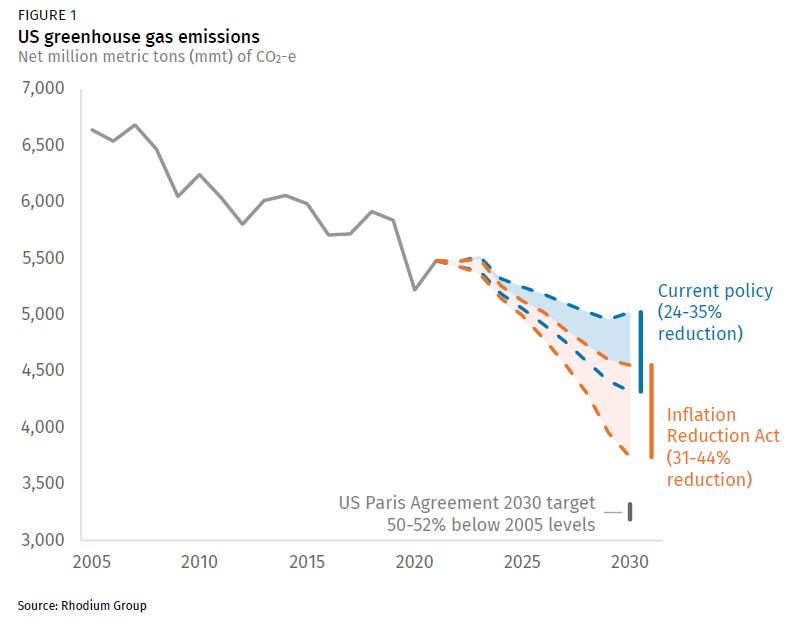
Can a “Boon For The Fossil Fuel Sector” Really Be Called a Climate Bill?
The absurdity of expanding fossil fuel use in a bill to prevent the catastrophic effects of fossil fuel use.
The Wall Street Journal reports that Shell, which recently made a record profit, is delighted with the “Inflation Reduction Act” that Joe Manchin has agreed to support. The company’s chief executive “praised the deal and highlighted its promise of new [oil and gas] lease sales to come.” Likewise, the head of ExxonMobil expressed approval: “We’re pleased with the broader recognition that a more comprehensive set of solutions are going to be needed to address the challenges of an energy transition.” (“Comprehensive set of solutions” meaning those that do not threaten fossil fuel industry profits.) “This is a bill that keeps the fossil fuel industry, and the country, in a very strong position,” Joe Manchin said. The Journal tells us that the new “climate bill” is in fact a “boon for the fossil fuel sector.” This is because:
Under the bill, the Interior Department would be required to offer up at least two million acres of federal land and 60 million acres of offshore acreage to oil and gas producers every year for the next decade. If they fall short, they wouldn’t be able to advance some permitting aspects of the wind and solar projects on federal land. It would be the first-ever required minimum acreage for offshore oil and gas leasing and significantly increase the acreage requirements for onshore leasing.
Branko Marcetic, in an excellent analysis of the bill’s pluses and minuses for Jacobin, calls these provisions a “decade-long carbon bomb,” and notes that some analysts have called it “deranged,” “madness,” and a “climate suicide pact.” Along with the “permitting reform” that Joe Manchin wants, which the chair of the House Natural Resources Committee calls a “euphemism for gutting our most foundational environmental and public health protections, like the National Environmental Policy Act,” the bill may end up substantially increasing American fossil fuel production. It also “doesn’t include many new rules or restrictions for industry” and “there’s no emissions reduction mandates that would simply require utilities or other businesses to slash carbon pollution.” The Lever explains that the bill “does not include any measures to restrict fossil fuel supply, instead entrenching the industry’s access to federal lands for drilling, and holding wind and solar development hostage on federal lands until lease sales are conducted.” Furthermore, some of what it funds might also turn out to be bullshit that does not actually do anything to address the problem. (For an excellent explanation of how to sort bullshit climate solutions from real ones, see Adrienne Buller’s new book The Value of a Whale: On The Illusions of Green Capitalism, and this interview I did with her.)
The bill is being celebrated for its sizable investments in clean energy. It “has been hailed as transformative by experts, containing hundreds of billions in grants, loans, federal procurements, and tax credits for research and development, deployment, and manufacturing in clean energy, transportation, and other sectors like agriculture.” The good news is that the bill “would provide $9 billion in rebates for low-income Americans to switch to electric appliances and retrofit their homes to be more energy efficient, and give people a $7,500 tax credit for buying a new electric vehicle.” The bill depends heavily on the mechanism of tax credits (the tax credit is the main policy tool preferred by neoliberals), but the investments it makes are far better than nothing at all.
Or at least, that’s what one would assume. But the serious question we have to ask is: since the burning of fossil fuels is causing climate change, what will the effect of massively expanding oil and gas leasing be? Will the emissions reductions that occur from the clean energy investments be enough to offset the new emissions that come from expanded fossil fuel production? Democrats have said that the bill will lead to a major emissions reduction. Sen. Tina Smith said it would lead to “a 40% emissions reduction by 2030,” calling this a “BFD” (big fucking deal). Chuck Schumer said that “The Inflation Reduction Act of 2022 will… reduce carbon emissions by roughly 40 percent by 2030.” But according to the first available analysis of the bill’s projected effects, this is essentially a lie. A study by the Rhodium Group offers the following estimate of the bill’s effects:

As you can see, we are currently on track for a 24 to 35 percent reduction in greenhouse gas emissions by 2030. With the bill, the Rhodium Group estimates there will be between a 31 and 44 percent reduction. Note, though, that the true amount could be anywhere within these ranges. It is not correct to say that the bill reduces emissions 40 percent by 2030, if we might have reduced emissions 35 percent by 2030 even without the bill. This is an effort to make the bill look more consequential than it actually is, and many press accounts repeat the phrasing that “the bill” will cut emissions by 40 percent.

Note, too, on the Rhodium Group’s graph, the Paris Agreement target. The bill sets us up to fall short of it. Rather than meeting our Paris commitment, this “historic” climate policy abandons that commitment, in part by offsetting emissions-reducing policies with massive expansions in fossil fuel production.
The Executive Director of Food and Water Action was scathing about the proposed compromise:
Streamlining permitting for natural gas pipelines and exports is not climate action, it is the opposite. This so-called deal forced by Senator Manchin is what we would expect when… friends and beneficiaries of the fossil fuel industry have effective control over ‘climate’ policy… [W]e should not accept deals that strengthen the oil and gas industry to the detriment of us all.
Likewise, 350.org said “the amount of giveaways to the fossil fuel industry, and specifically to Sen. Joe Manchin, is so wide in scope, that it turns all of the gains in addressing the climate crisis into a moot point.”
What seems to have happened is this: Joe Manchin has stubbornly refused to support addressing climate change, because meeting the Paris target would require scaling back fossil fuel use, and he is staunchly committed to supporting the fossil fuel industry (an industry he is personally a part of). Chuck Schumer, desperate for a Democratic “win,” came up with a clever solution: what about a bill called a “climate bill” that also contained huge handouts to Shell and stopped the government from getting in the way of new fossil fuel production? This was a win-win for Schumer and Manchin. Now Democrats won’t look useless and ineffectual on climate, but they also won’t threaten the fossil fuel industry. Democrats have a strong interest in insisting that this bill is better than it actually is, and downplaying the unsavory aspects.
But the thing about climate change is that you can’t fake a solution to it. Sooner or later, reality will bite you in the ass. You can’t address climate change while escalating fossil fuel production. Shell’s profits come at the expense of the climate. What we can see from the preliminary analysis is that by committing to the protection of fossil fuels, Democrats have actually made sure that their new climate measures will fail to hit the Paris climate targets.
Look, I understand that political reality means that this might be the only bill that could conceivably get passed, because of the reality that Joe Manchin has veto power over climate policy. But let’s be real: this will be a deal with the devil, and it shouldn’t be treated as some wonderful historic win. A lot of the positive parts of this bill are going to be undermined by the parts that actually accelerate climate change, even if on a “cost benefit analysis” the bill bumps us marginally closer to our emissions reduction targets (which it might or might not, according to the Rhodium analysis, which shows that its effect could actually end up being negligible). I realize that this country’s politics are so screwed up that we might realistically have to give the fossil fuel companies millions of acres of federal land in order to get tax credits for electric vehicles (although none for e-bikes, since the bill carefully preserves American car culture). But let us at least be honest and admit the absurdity of calling a bill containing colossal handouts to the companies that are destroying the climate a “win for the climate.”
Regardless of how much one celebrates the bill, one fact is clear: it is not, on its own, a sufficient solution to the climate crisis. It is, at best, a start, and it requires unsavory compromises that threaten to make the problem worse. If we are serious about the problem, we must begin with the fact that the problem comes from fossil fuel use. A bill that treats fossil fuels as part of a “comprehensive set of solutions” to climate is like a bill to improve healthcare that also contains funding for releasing new viruses. It’s an absurdity.


